After leaving Nice in 2019, the former TNN director retreated from the public eye to reinvent herself, and has emerged more creative than ever. Her current play in Palermo bears witness.
Four years ago, two staples of the theatre world still existed in Nice that were an integral part of the city’s cultural fabric: the Théâtre National de Nice (TNN) and Irina Brook as its director from 2013-2019. Both are now gone, and both are sorely missed: But while the TNN was recently demolished and nothing remains of it but fond memories, Irina Brook has taken her experience and turned it into a stepping stone for an entirely new artistic expression. After a period of retreating and redefining herself as an artist, she has reconnected with her first love, cinema. And she seamlessly integrates it with what she loves best about theatre: mentoring, shaping, and empowering young actors. The result: a stunning new play – a new version Chekhov’s Seagull – which has just opened in Palermo, Sicily.
Irina has kept busy these past few years. Devoted followers of Irina Brook have seen her name pop up discreetly, but never anywhere near Nice or even France. There was a photo exhibition in the UK and a period of experimental work in Japan. And there were two operas in Vienna, and a third one scheduled in New York (which had to be postponed for the time being).
But the one place she seems drawn to time and again, and where she does brilliant innovative work, is Italy, a country she loves. And the love story is mutual. Italy loves Irina; and cannot get enough of her. In 2020 and 2022 respectively, she presented her creation House of Us in Palermo and Venice, an autobiographical walkthrough installation slated to become the central work of her life. She also directed two more operas at Milan’s celebrated La Scala – the Brecht-Weill diptych Mahogonny Songspiel in 2021, and Il Matrimonio Secreto in 2022.
And right now, she is back in Sicily, where “Seagull Dreams”, her loose adaptation of Anton Chekhov’s The Seagull premiered to great success at Palermo’s Teatro Biondo on February 24.
“Italy invigorates me…,” Irina says. It’s easy to see how Irina, with her unbridled “let’s just do it” spirit meshes much better with the cheerful and idealistic Italian mentality than the Cartesian French one. “…and Chekhov represents all my youth,” she continues. The Russian playwright’s œuvre does indeed mirror her own life story in many ways.
In his original work Chekhov explores the complex relationships and interactions within a theatre family in rural Russia at the turn of the 20th century, with its central themes revolving around the pursuit of artistic creation, love, jealousy, and the human desire for meaning and fulfillment. To Irina, its themes are the same challenges that today’s youths are faced with: depression, isolation, loneliness, frustration, an uncertain future, the tension between individuality and conformity.
And yes, indeed, there are undeniable parallels between the Russian playwright’s piece and Irina’s biography. Born in Paris but largely raised in Britain, Irina Brook grew up in a family of internationally acclaimed artists and strong personalities, with both parents descending from Latvian-Russian families. Her late father, Peter Brook, was a theatre legend unto himself, her late mother Natasha Parry a famous stage and film actress, and a ravishing beauty. How do you step out of the shadow of such towering figures? What if you grow up in a world where theatre and life become one and the same, and you’re never sure of the boundaries between them?
Seagull Dreams, a deconstructed and intimate version of The Seagull, examines that question. Here, Irina Brook embarks on a work that stems organically from her first “theater-installation” House of Us: The Mother. “Through the texts and the emotions of Chekhov’s mythical play, I continue to develop the themes of ‘Life and Theater’, life in the theater, theater in life….”, she explains. “For this new exploration, I am reuniting with young actors from the Palermo drama school, as well as the great Italian actress, Pamela Villoresi who plays Arkadina, and my iconic actor, Geoffrey Carey, who incarnates Sorin”. It’s a work that takes us on a thrilling journey back and forth between the narrative of the play and more contemporary reinventions, opening up into a dreamlike world, inhabited by personal memories.
— Irina Brook
The gentleness of Chekhov’s words are the leitmotiv that guides Irina through all her new creations. “His presence is intimately linked to my mother, and her unforgettable performance as Arkadina in The Cherry Orchard in Paris in the early 1980s. And also to my own memories, flashbacks to playing Nina in The Seagull, with all the sufferings of a young actress lacking experience.” It is noteworthy that this is her first time directing theatre again since her highly memorable Romeo and Juliet in Nice just prior to her departure from the TNN.
“How to be twenty in this world we live in, and survive it, through creativity, spirituality and the arts?” – that is the red thread throughout Irina’s House of Us projects. And when she realized that Chekhov’s Seagull and Shakespeare’s Hamlet are telling the same story in different expressions, it only made sense to her that both should flank the central House of Us… overarched by the shared theme of the state of youth today. “The theatre/museum/installation House of Us is at the centre, and emerging from the themes of House, I am creating two plays, Seagull Dreams and Hamlet Live”, she explains the concept. In Hamlet Live, Irina will train the spotlight on the loneliness and isolation of young people in today’s society. “I imagined a link with Hamlet, who becomes here a symbolic character for today’s lost youth, a contemporary archetype, imbued with all the anxiety, depression and insecurities of this generation”, she shares her vision. After the successful launch of Seagull Dreams, the first workshop of Hamlet Live is planned for March, with a premiere at Chateau d’Hardelot in the North of France in spring 2024, with whom she has a three-year partnership/residency around Shakespeare.
While the link that connects each part of the trilogy is the shared theme and the performers, each panel can be seen and understood independently. Irina’s ultimate dream, however, would be “to show all at the same time, somewhere… Walk through House of Us in the afternoon and watch Seagull or Hamlet by night.”
This ambitious project in several stages started in Sicily in 2021 at the Teatro Biondo, followed by a second experience in Venice in December 2022 at the Teatro Stabile del Veneto. Transmission is at the heart of the project. “Each time, we bring together young actors from the drama schools with actors who have a lifetime of experience on stage,” Irina explains. Here, the Thespian giants Pamela Villoresi, who is also the director of Teatro Biondo, and American Geoffrey Carey, Irina’s longtime collaborator, carry fresh local talent Giuseppe Bongiorno, Emanuele Del Castillo, Monica Granatelli, Giorgia Indelicato, and Giuseppe Randazzo on their shoulders. After the current run in Palermo, Seagull Dreams will be touring other Italian cities (see tour schedule at the bottom).
In addition to curating the adaptation, direction, sets and costumes, Irina Brook also created the videos that are an integral part of the dramaturgy, even though that pushed her out of her comfort zone. “I have always hated the use of video in theatre, primarily because I feel that a live actor has little hope of ever competing with the hypnotic allure of the screen. And I am devoted to actors!”, she says. “But secretly, film has always been my first love, so there’s a complicated love-hate issue going on there! I hope that these images can now find their right place in this Chekhov house of dreams and memories.”
The central œuvre, House of Us, is the triumphant result of years of painful soul-searching after Irina’ tumultuous six years in Nice. “I was no longer sure if I even still loved theatre,” she says. Her tenure at the TNN was fraught with hurdles thrown in her way by the municipal political establishment which had favoured another candidate at the time of her appointment to the highest cultural office in town. Although eventually quite enamoured with her, it took the conservative Niçois public some time to warm up to visionary and cosmopolitan Irina Brook as she enthusiastically introduced Shakespeare and advocated for an environmentally sustainable lifestyle in the land of Molière and foie gras. And as a city, Nice’s glaring bright sunlight and noisy ambiance jarred Irina’s sensory sensitivity, which is so much better suited for the gently muted colours and sounds of the English countryside or the pastels of a Sicilian spring. Add to that the permanent pressure of constantly being measured up against her larger-than-life father…. She must have felt burnt out when resigning of her own accord one year before her tenure was officially up.
But a full-blooded artist like Irina has ‘creation’ embedded in her DNA. While she instinctively knew what she did not want anymore – performing in or directing big productions, catering to mainstream taste, running a high-profile cultural institution – her passion for opera never left her, and she also developed a vivid interest in video making. She also realized that for her, the most rewarding part of work was grooming young artists, from awakening their love for classic literature to mentoring them as tomorrow’s leads. She had already done a remarkable job in Nice with Les Eclaireurs, the young company of aspiring actors who flourished under her guidance, and she once again she felt tugged in that direction.
When invited by Pamela Villoresi, actor and director of Palermo’s Teatro Biondo, to mount her Chekhov adaptation, Irina saw in it the opportunity of a cathartic cleansing and an artistic rebirth. And of course, she could work with drama students that she feels so comfortable with. “Sharing my theatrical experience with young creatives, and above all, my life experience, seems to me, today, the best possible way to be useful.” Working with youth is not only the red thread through all her work now, it is what inspires and uplifts her. As for Pamela, she is full of praise for Irina’s work, which she calls “pure poetry”.
What does art mean today in this rapidly changing world? How have the past few years – with their challenging impact on everyone’s mental wellbeing – changed the craft? Are we finally going back to the roots where theatre was not about expensive productions, famous actors, big egos, or even the culturopolitical chess game it has become, but about simple, uplifting, inspiring storytelling, or did we not get the message? What challenges do we as a society, and especially today’s youth, face? Big fundamental questions that Irina appears to have answered, at least for herself.
Four years after leaving Nice in 2019, there are more than just a few locals who voice regret about her departure. “She brought so much joyful energy to her plays,”… “She actually made me appreciate Shakespeare,”… “She reached out to people from all walks of life, and especially the young”… “She kept it real…”, are frequently repeated comments from pretty much everyone we talked to. And this shows that people now finally understand and appreciate Irina Brook’s gift to Nice: she never really wanted to be an actor, or a director, she didn’t want to be someone with a big title who happened to have a famous father – she always just wanted to be authentic self – an educator, an inspirer, a creator, a pioneer, a profoundly human being. She feels rejuvenated now that she has found her true self. “While I was working on this project, I fell back in love with theatre,” she shares. And there are many who hope she’ll come back some time to the region with the House of Us, and a fresh company of eager young actors who can still make us dream, and think, and hope.
“Seagull Dreams – I sogni del Gabbiano”
Teatro Biondo, Palermo, Sicily, through March 5, 2023
TOUR DATES
7 – 12 March 2023: Catania, Teatro Verga
16 – 19 March: Ancona, Teatro delle Muse
23 – 26 March: Trieste, Teatro Politeama Rossetti
12 – 16 April: Brescia, Teatro Sociale
20 April: Pisa, Teatro Verdi
21 – 23 April: Forlì, Teatro Diego Fabbri
Photos © Rosellina Garbo


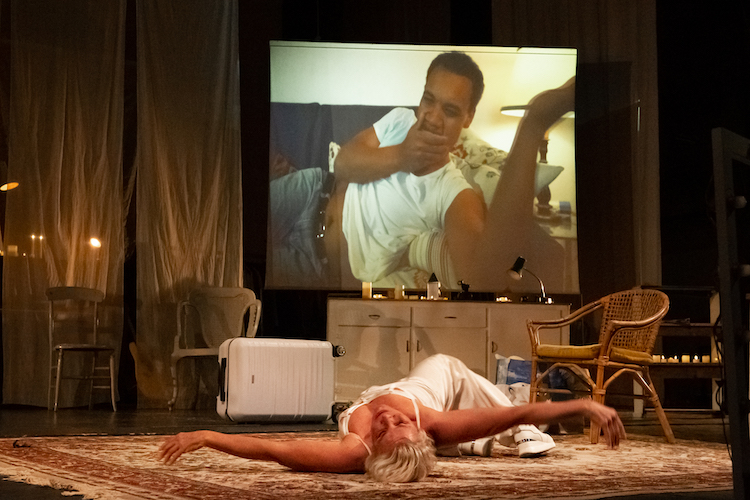
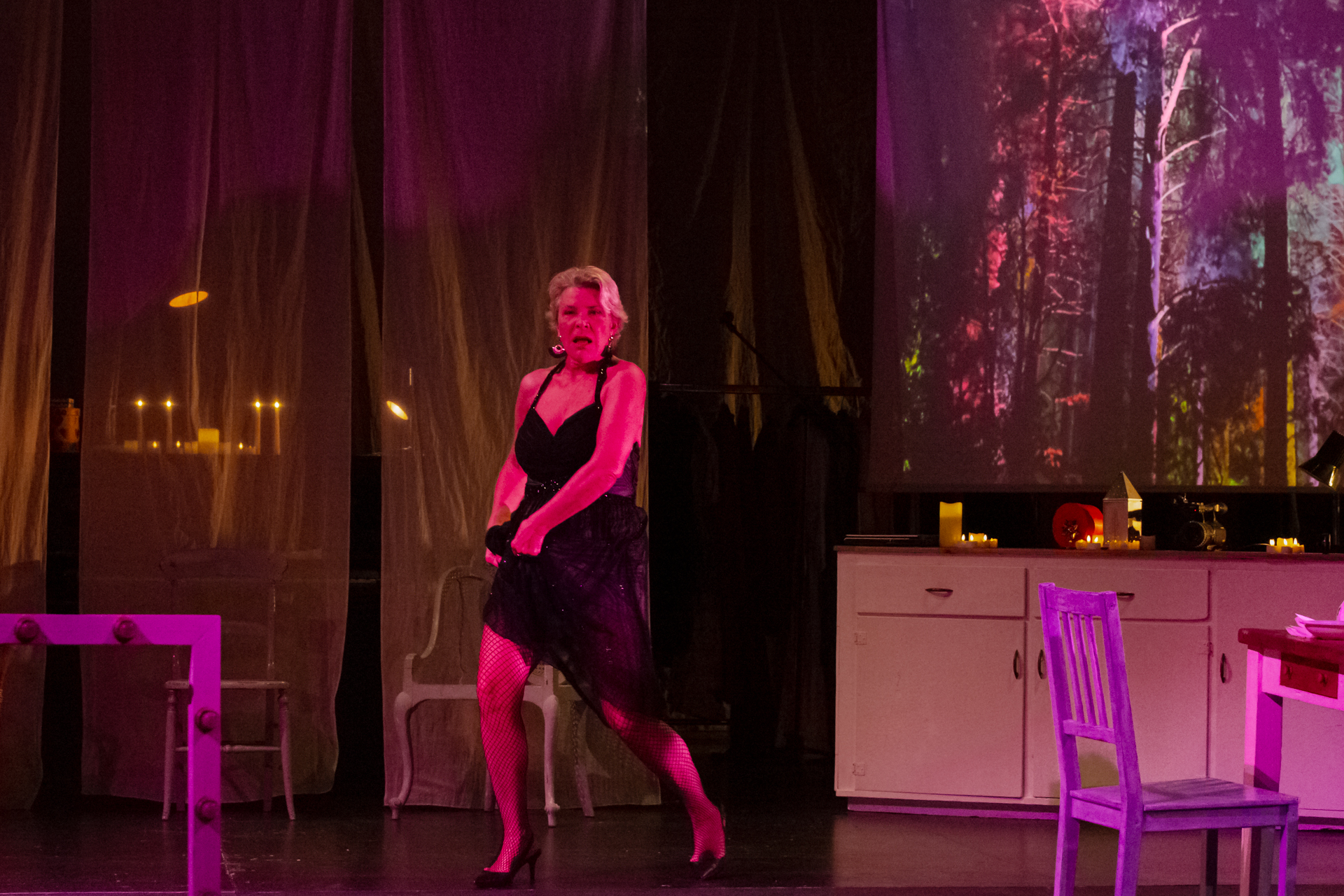
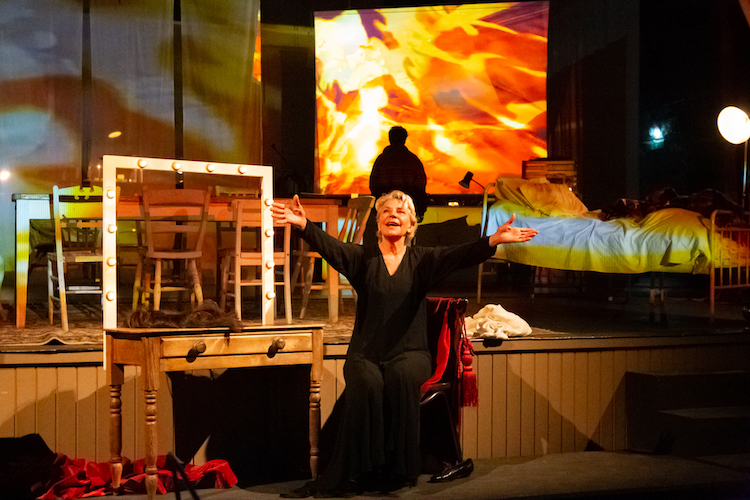
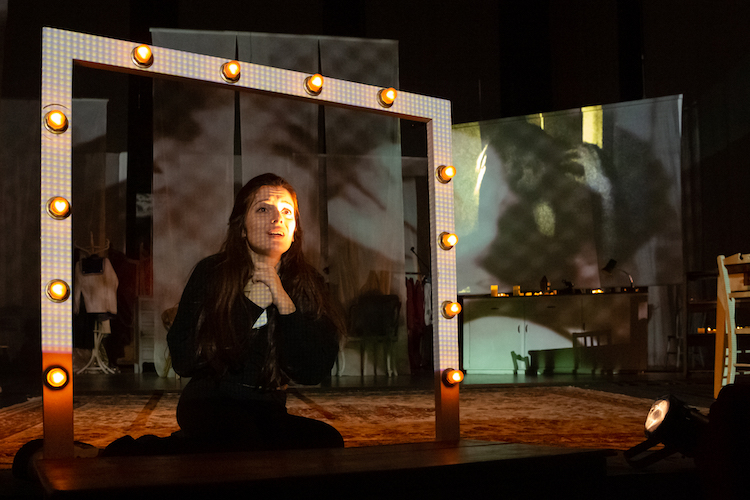
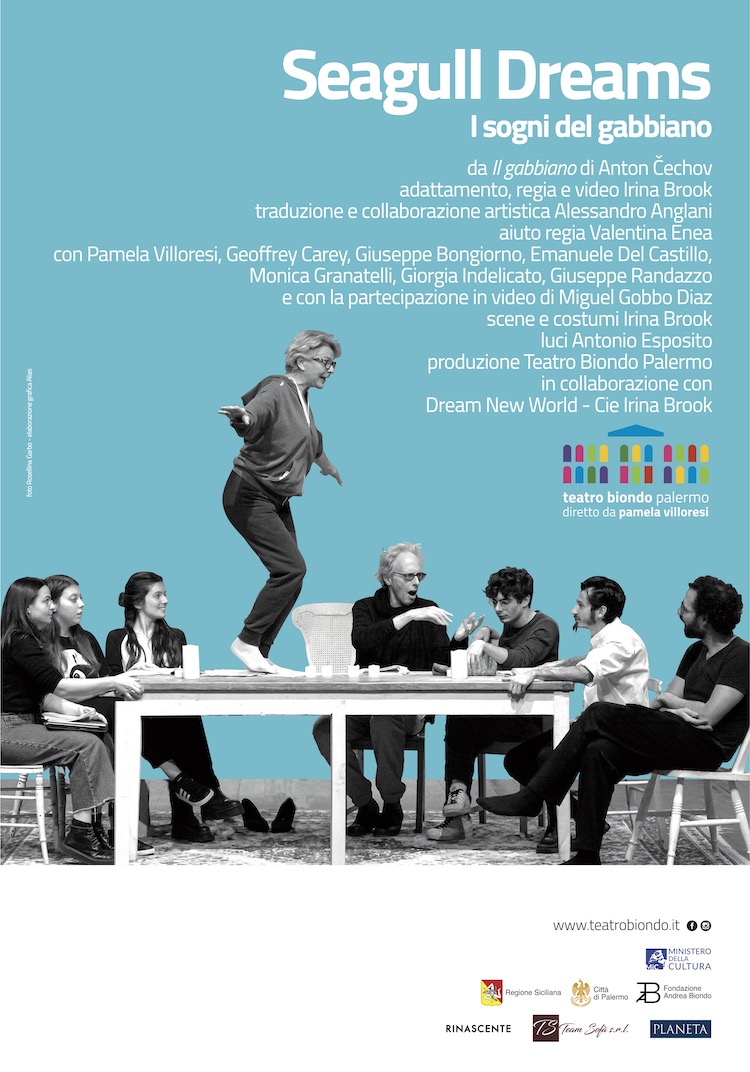
Leave a Reply